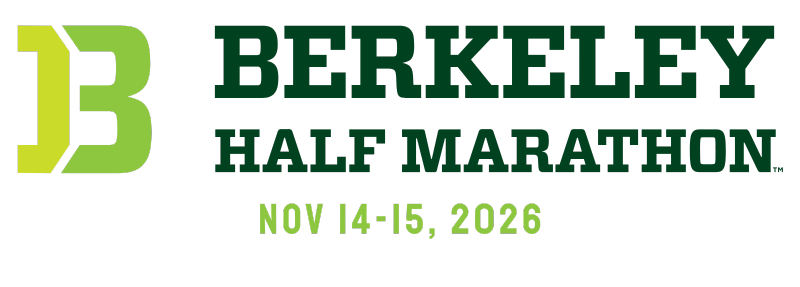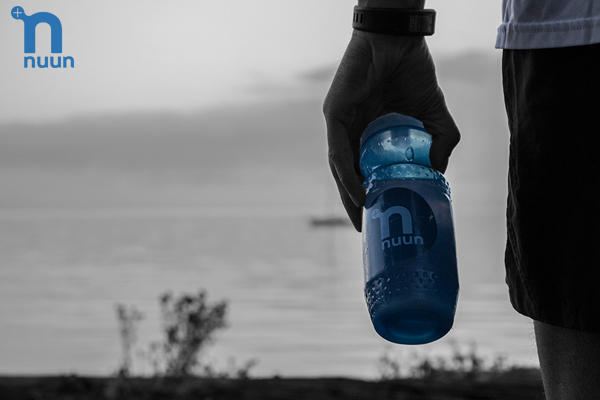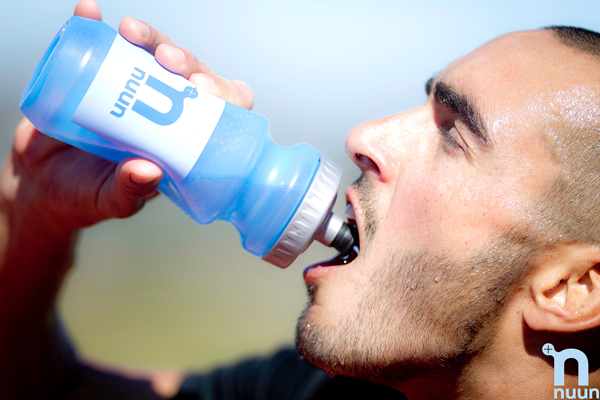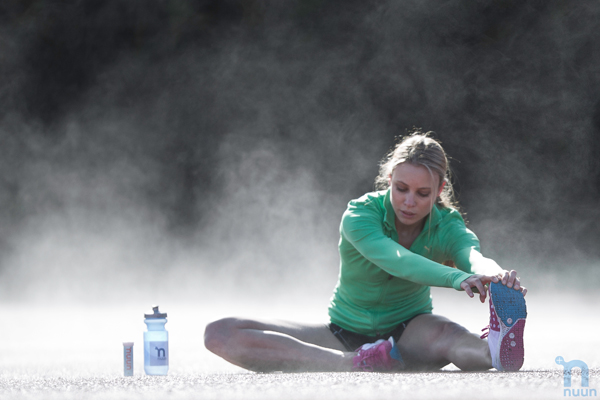Hydration Tips for #BHM2015
With the Biofreeze Berkeley Half Marathon less than a month away, we caught up with Nuun, the official electrolyte for #BHM2015, for tips on hydrating during training and race day. Direct from Nuun’s “Hydration HQ,” here are tips to help you hydrate for the Biofreeze Berkeley Half Marathon during training and on event day:
- Biofreeze Berkeley Half Marathon has a few hills of nearly 200 feet of elevation gain at the beginning of the course and the end of the course – how do you advise thinking about hydration in relation to tackling course elevation? Generally, you don’t need to adjust your hydration for hilly courses. We recommend consuming fluids early and often. Practice hydrating this way during your training (and remember to think about your sweat rate). This will help prevent you from playing catch-up later in the race. But this doesn’t mean to over-hydrate. Too much fluid in your stomach can be extra uncomfortable on hill climbs.
- Why is it valuable to train with the same electrolyte you will use during your race? What benefits does that deliver to you? Repeat after us: nothing new on race day. Training with the same electrolyte allows you to familiarize and train your stomach. This will also help you feel more comfortable with your hydration strategy. Practice, practice, practice so no hiccups happen come race day.
- There are six hydration stops on the half marathon course. How do you advise utilizing each of these hydration stops during the race? Consume some fluid at every aid station. If you’re not thirsty, then take a small sip of Nuun and spit it out. But take that sip. You can receive some of the performance benefits this way.
- What health benefits are associated with proper hydration? Someone that is appropriately hydrated will have increased energy and improved muscle function, and will recover faster, post-workout.
- What concerns should athletes have around dehydration? Dehydration not only can negatively affect your performance, but you could also be drowsy and disoriented.
- How should an athlete monitor hydration levels to ensure they are hydrated appropriately? The easiest way to monitor hydration levels is to check your urine color. You should aim for a pale yellow (clear means you’re over-hydrated). Conducting a simple sweat-test (instructions below) every 3-5 weeks can help you fine tune how much fluids you lose during exercise so you can replenish properly.
- What is a sweat test and why (and how) should you perform one during training and/or your race? A sweat test is a simple exercise you can do to help determine how much fluid you lose during exercise. Often, training and racing environments differ, so we recommend conduct sweat tests often to see how your body is adapting to the conditions and potential changes in fitness level.
- Weigh yourself (nude) before your run. ___ (lbs) = A
- Go for a 60-minute run. Do not consume any fluids during the run.
- Weight yourself (nude) after the run. ___ (lbs) = B
- Complete the following equation: A – B = C (weight lost during run)
- Each 1lb loss (during exercise) equates to roughly 16 fluid oz. C X 16 (fl oz) = ___ fl oz D
- Your hourly sweat rate is the value D.
Remember, some dehydration is okay. Aim to consume up to half of the fluids you lost (+/- 4 fl oz).
- What personal, situational and environmental factors most impact how an athlete should alter their hydration plan for a race? Fitness level is a major factor on how well your body can process fluids. Generally speaking, the more fit you are, the better your body be at metabolizing nutrients through fluids and foods. Environmental conditions such as high heat and humidity can increase your core temperature faster than normal, and you’ll want to adjust your pacing and fueling strategies in warmer conditions.
- What other hydration knowledge should BHM runners consider? Staying properly hydrated each day is just as important as hydrating during a training session or a race. If you start the race already dehydrated, it’s very hard to come back from that. Particularly make sure you’re concentrating on hydrating the week leading up the race. A good rule of thumb is to consume half your weight (in lbs) in ounces of water/Nuun each day.
- What other race tips do you have for hydrating appropriately on November 22nd? Start training with Nuun early to let your stomach and body get ready for race day (the sooner, the better). And don’t forget your fuel! Make sure to take in some calories (as carbohydrates) during the race as well. You won’t need a lot. Consider adding a couple tabs of PLUS for Nuun (carbohydrate-enhanced tabs) to your favorite flavor of Nuun, or bring enough gels to consume 0.5-1 gel per hour.





Got something to say?
You must be logged in to post a comment.